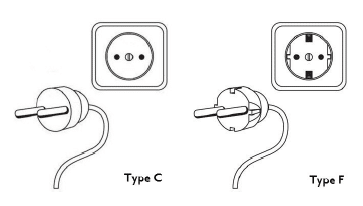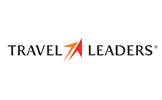LUXEMBOURG

Fun Facts From Globus Tours
- Luxembourg is one of the smallest countries in Europe as we as the world.
- The entire City of Luxembourg is a UNESCO World Heritage Site.
- All official proceedings and business in Luxembourg take place in French. However, in Luxembourg, the first language is taught is schools, as well as that used by the media, German.
This independent state—bordering Belgium, France, and Germany—is just 998 square miles and has a population of approximately 591,000. But it plays an important role in international politics and banking, and it is a center for modern European institutions. Luxembourg was made a Grand Duchy by the Congress of Vienna in 1815 and was recognized as a neutral independent state in 1867. The last of hundreds of independent duchies which once made up western and central Europe, its motto is “we wish to remain as we are.” The capital, Luxembourg City, which stands high on a promontory with beautiful views of the Petrusse and Alzette valleys, was once one of Europe’s strongest fortresses. Despite its small size, Luxembourg has much regional variety, including the Mullerthal or “Little Switzerland,” an area of outstanding natural beauty, and the wine-producing area in the east, a continuation of Germany’s Moselle Valley.
VISAS, PASSPORTS, AND OTHER ENTRY REQUIREMENTS
Visas to Luxembourg are not required for US citizens. If you hold a passport from another country, please check with your local consulate about requirements for travel to Luxembourg. All passengers traveling internationally are required to have a passport. Please carry proper identification (your passport) on you and do not leave it in your suitcase or hotel room.
It is advisable to carry your passport with you at all times.
COUNTRY CODES
The country code for Luxembourg is 352. When calling to Luxembourg from overseas, dial your international access code (011 from the US/Canada), followed by the country code, area code, and phone number. Phone numbers in Luxembourg are seven digits in length. Dialing from the US/Canada: 011 352+### ####.
CURRENCY
The official currency of Luxembourg is the Euro.
Bank hours: 9 a.m. to noon and 1:30 p.m. to 4 p.m., Monday through Friday.
Euro coins differ according to country, but they can be used in any Eurozone state. Bank notes are of uniform EU design (depicting European architectural styles throughout seven ages, from Classical to Modern times).
1 EURO (€) = 100 Cents (c)
- Banknote denominations: €5, €10, €20, €50, €100, €200, €500
- Coin denominations: 1c, 2c, 5c, 10c, 20c, 50c, €1, €2
For the most current exchange rates, please go to our website at Globusjourneys.com/Currency.
Credit cards are widely accepted (mostly Visa and MasterCard), and you should have no problems using them in larger shops and restaurants. Smaller shops may ask you to pay in cash or have a minimum amount required to use a credit card.
BUDGETING AND SHOPPING
The following budget guidelines are just approximate values or starting values for meals and are per person. Actual prices will vary widely by restaurant and city within a country but below are some averages as provided by our experienced personnel.
- The approximate cost of a soft drink/mineral water/coffee is €2.50-3.50.
- An average lunch consisting of a salad or sandwich and a soda or water starts at approximately €10-15.
- Dinner at a mid-range restaurant with dessert and a non-alcoholic beverage starts at approximately €30-40.
Please note that soft drinks and mineral water are often as expensive, if not more expensive than wine or beer. Shopping specialties: chocolates, wines, porcelain and ceramics. Counterfeit and pirated goods are widely available; be aware that under local law transactions involving such products may be illegal, and bringing them home may result in confiscation and fines. Sales tax or VAT (value added tax) is included on price tags. To obtain VAT refunds (which may take up to three months to process) special forms usually have to be stamped by Customs; please ask for a taxfree shopping form with each purchase and follow the instructions for completion; not all shops may offer this service, and minimum amounts may apply. Customs import charges on items shipped home are not included in purchase prices.
TIPPING
For restaurant service where the service charge is already included, round up the bill by 1-2 Euros. If the service charge is not included a tip of 10-15% is a reasonable amount. Tips are usually left in cash and not added to the credit card payment.
For taxis, round up the fare (€1 for a city ride; €2 for a ride from/to the airport).
Tip hotel staff €1 for room service.
ELECTRICITY AND ELECTRICAL OUTLETS
Outlets
Voltage for outlets is 220V. North American voltage is generally 110V. Therefore, you will need a converter for your travels. Adapters will be necessary to adapt your plug into the outlet, but these may not convert the voltage, so both devices are necessary.

TEMPERATURES
Luxembourg enjoys temperatures without extremes; mild winters and cool summers. The warmest months are May to October. Rainfall is moderate, giving Luxembourg a pleasant climate. To help you plan, below are average low and high temperatures for Luxembourg.

To convert to Celsius, subtract 30, then divide by 2. While not exact, this simple formula will give a close estimation.
FOOD SPECIALTIES
Thuringer sausages, Luxembourg ham, Gromper Keeschelche (potato pancakes), Kach Keis (cooked cheese), pate, quetsche tort (fruit tarts), and white wines.
FEW WORDS OF THE LOCAL LANGUAGE
French:

Good morning/day (until 5 p.m.): Bonjour, Good evening: Bonsoir, Goodbye: Au revoir, Please: S’il vous plaît, Thank you: Merci, Yes: Oui, No: Non, Do you speak English?: Parlez-vous anglais?, I don’t understand: Je ne comprends pas, Please write it down: S’il vous plaît, écrivez-le, How much?: C’est combien?, 1: Un, 2: Deux, 3: Trois, 4: Quatre, 5: Cinq, 6: Six, 7: Sept, 8: Huit, 9: Neuf, 10: Dix, Where is…?: Où est…?, Telephone: Le téléphone, Bathroom: Les toilettes, Tea: Thé, Coffee: Café, Bottled water: De l’eau minérale (carbonated=eau petillante, non-carbonated=eau plate), Cheers!: Santé!, Restaurant check/bill: L’addition, Waiter: Monsieur (not garçon), Waitress: Mademoiselle, Have a nice day!: Bonn journée!.
German:
Good morning: Guten Morgen, Good Day: Guten Tag, Good evening: Guten Abend, Please/You’re welcome: Bitte, Thank you: Danke, Yes: Ja, No: Nein, Do you speak English?: Sprechen Sie Englisch?, I don’t understand: Ich verstehe nicht, Please write it down: Können Sie das bitte aufschreiben? How much?: Wieviel kostet das?, 1: Eins, 2: Zwei, 3: Drei, 4: Vier, 5: Fünf, 6: Sechs, 7: Sieben, 8: Acht, 9: Neun, 10: Zehn, Where is…?: Wo ist…?, Telephone: Telefon, Bathroom: Toilette, Tea: Tee, Coffee: Kaffee, Bottled water: Mineralwasser (carbonated=mit Kohlensäure, non-carbonated= ohne Kohlensäure), Cheers!: Prost!, Restaurant check/bill: Die Rechnung.
U.S. DEPARTMENT OF STATE COUNTRY INFORMATION
Additional country-specific information for US citizens can be found on the US Government’s website www.travel.state.gov. Here, you can find the most up-to-date information about destination descriptions, passports/visas, safety and security, transportation, travel local laws, alerts/warnings, vaccinations, and more. For citizens of other nations, we recommend you consult your local consulate for travel information, regulations, and requirements.












